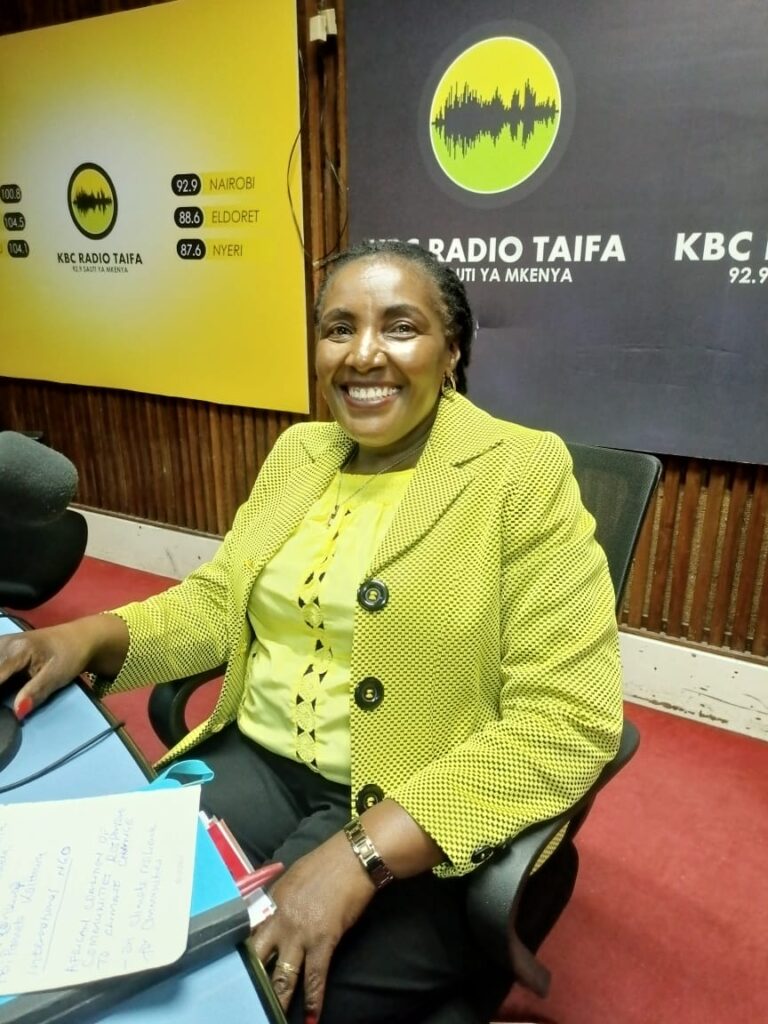President Ruto asked to integrate mental health in climate-related disasters’ responses

President William Ruto’s government has been urged to integrate mental health in all climate change intervention programmes.
Speaking in a radio interview, Dr Pamela Kaithuru, a psychologist on climate-related stresses said besides commodities, survivors from losses and damages due to climate change as those in most parts of Northern Kenya also need psychosocial support.
“Designing intervention programmes that exclude mainstreaming psycho-social and mental health is doing a disservice to communities undergoing stress and depression from loss due to severe impacts of climate change such as droughts as being witnessed in parts of the country,” she said.
Extreme weather events such as floods and droughts have become more frequent, intense and at increasing severity.
The society, said Dr Kaithuru must look seek for ways of protecting vulnerable populations such as those in humanitarian situations. In Kenya for example, it is now official that droughts cycles now occur every year. Some decades ago when they used to come once in a generation.
According to climate change experts at the IGAD Climate Prediction and Application Centre (ICPAC) extreme weather conditions present a serious threat to human livelihoods, and in certain situations, they may even be fatal. The Intergovernmental Authority on Development (IGAD) in Eastern Africa and including Kenya.
Agriculture, water, health, energy, infrastructure, and transportation are just a few of the many climate-sensitive sectors negatively impacted by recurrent shocks that have recently grown in frequency and intensity.
Dr Kaithuru who also doubles up as an expert consultant at the African Coalition of Communities Responsive to Climate Change (ACCRCC) said when pastoralists losses all his livestock or smallholder farmers fails to harvest after massive investment on the farm, the resultant stress is huge.
“Unfortunately, this has been a neglected area, yet to receive needed attention,” she said.
Often, continued Dr Kaithuru, governments and non-governmental organisations plan for commodities and non-food items and have hardly considered integrating mental health in intervening programming.
According to Dr Kaithuru, climate change is already impacting health in a myriad of ways, including by leading to death and illness from increasingly frequent extreme weather events, such as heatwaves, storms and floods, the disruption of food systems, increases in zoonoses and food-, water- and vector-borne diseases, and mental health issues.
Furthermore, she said, climate change is undermining many of the social determinants for good health, such as livelihoods, equality and access to health care and social support structures.
Worse, said Dr Kaithuru is the depression that farmers and pastoralists suffer because of loss of livelihood due to climate-related impacts.
Depression is a common illness worldwide, and affects about 280 million people, leading to over 700 000 deaths from depression-related suicides every year. Kenya is ranked fourth leading African country with high cases of depression with close to 2 million people affected.
According to the ministry of health, depression accounts for 25% of the disease burden among outpatients, 40% among inpatient with 1% of the general population prevalence of psychosis.
Dr Kaithuru said this percentage is likely to increase dramatically with climate change crisis which is increasing related conflicts for water, and pastures.
Dr Kaithuru said between 2030 and 2050, climate change is expected to cause approximately 250 000 additional deaths per year, from malnutrition, malaria, diarrhea and heat stress.
The direct damage costs to health (i.e. excluding costs in health-determining sectors such as agriculture and water and sanitation), is estimated to be between USD 2-4 billion/year by 2030.
Over 930 million people – around 12% of the world’s population – spend at least 10% of their household budget to pay for health care.
Making matters worse is the weak health infrastructure in vulnerable countries, a fact that does not offer coping mechanism for climate-affected populations.
With the poorest people largely uninsured, health shocks and stresses already currently push around 100 million people into poverty every year, with the impacts of climate change worsening this trend.
The Intergovernmental panel on climate change (IPCC) says that to avert catastrophic health impacts and prevent millions of climate change-related deaths, the world must limit temperature rise to 1.5°C.
The IPCCC notes that the climate crisis affects the people who contribute least to its causes, and who are least able to protect themselves and their families against it – people in low-income and disadvantaged countries and communities.
The climate crisis threatens to undo the last fifty years of progress in development, global health, and poverty reduction, and to further widen existing health inequalities between and within populations.





